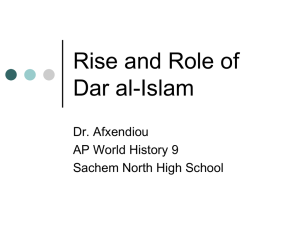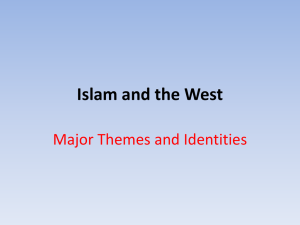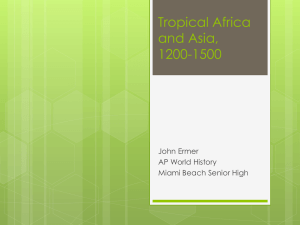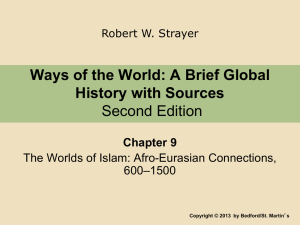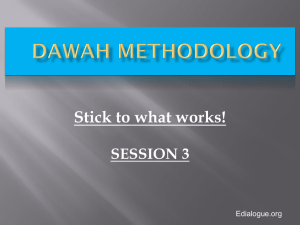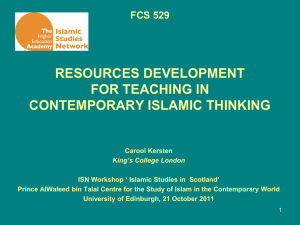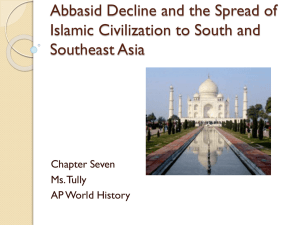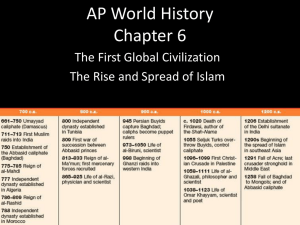The Advent of Islam and its impact on South Asian Polities
advertisement
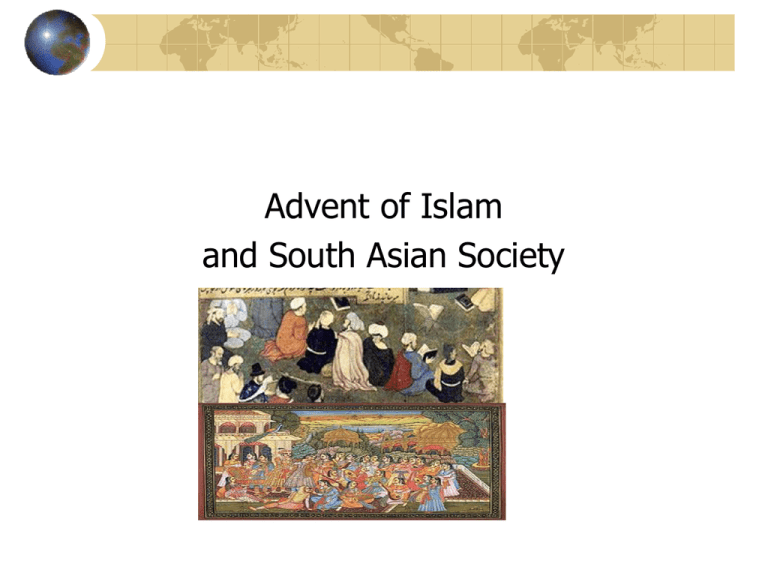
Advent of Islam and South Asian Society Islam In South Asia and the Debates in Indian Historiography British Construction of the Image of Islam as Homogenous Monolithic Religion Colonial Ideas of the Periodization of Indian History Portrayal of the Muslim Rule as a Dark Period Indian Nationalist Incorporation of Colonial Historiography Glorification of Islam and Two Nation Theory Contemporary Western Perception of Islam Complexity of Everyday Life Origins of Islam and Historic Interpretation Islamic Scholarly Perception of Radical Break Socio-Economic Interpretation based on Islamic Arab Sources A long Evolution of Monotheistic Religious Cult based on Jewish Religious Practices and Apocalyptic Thoughts Based on Greek, Hebrew, Syriac, Coptic and Armenian. Islam as Radical Break or Islam that organically grew out of local social and economic structures Five Pillars of Islam Meaning of the terms Faith Prayer Charity Fasting Pilgrimage The Idea of Community Creation of Islamic Civilization Reasons for the expansion of Islam Preservation of community and Initial Conflicts Among Muslims Unification of Arab Civilization Ideological purpose and guidance Organizational Revolution Military might and cultural wealth Example of Khwarizmi’s (850 AD) Hishab-al- Jabr-wal Muqabala Military Political Conquest of Islam Conquest of Sindh, Parts of Punjab and Rajasthan between 711 and 725 AD Slave Soldiers and their Conquest of North India Khaljis (1295-1316)and Tughlaqs (1324-1351) of Northern India Spread of Islam in South Asia Arab Traders and Foundation of Muslim Community in Malabar Coast Evolution of Sufi Orders and the spread of Islam Frontier Societies, Islamic Shrines and Pastoral Wheat Cultivation and Forest People Caste, Sects and Religion Agrarian Revolution in Muslim Societies Urbanization and Rise of Garrison Towns World of Muslim Merchants Diffusion of Fire Arms and New Aspects of State formation


